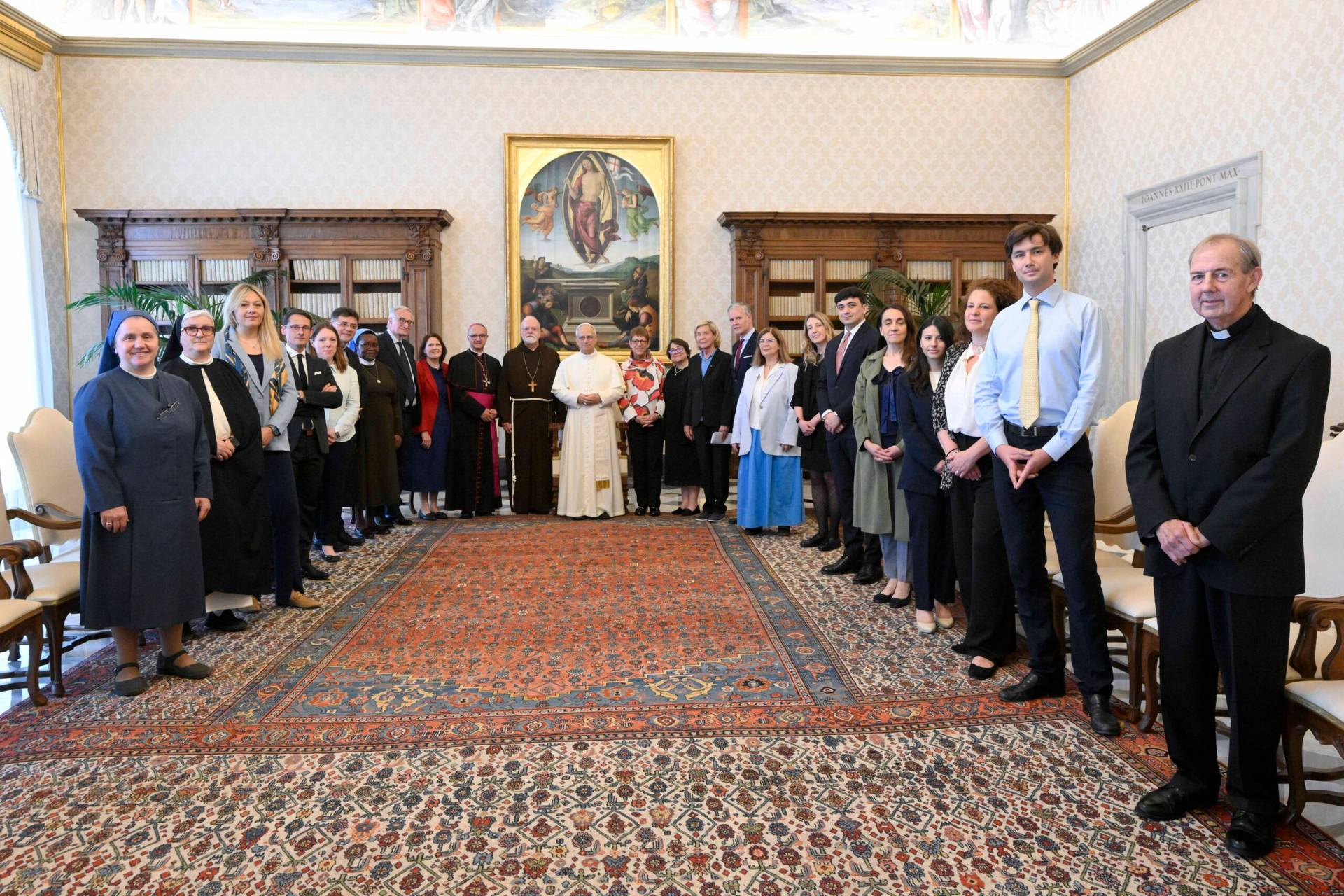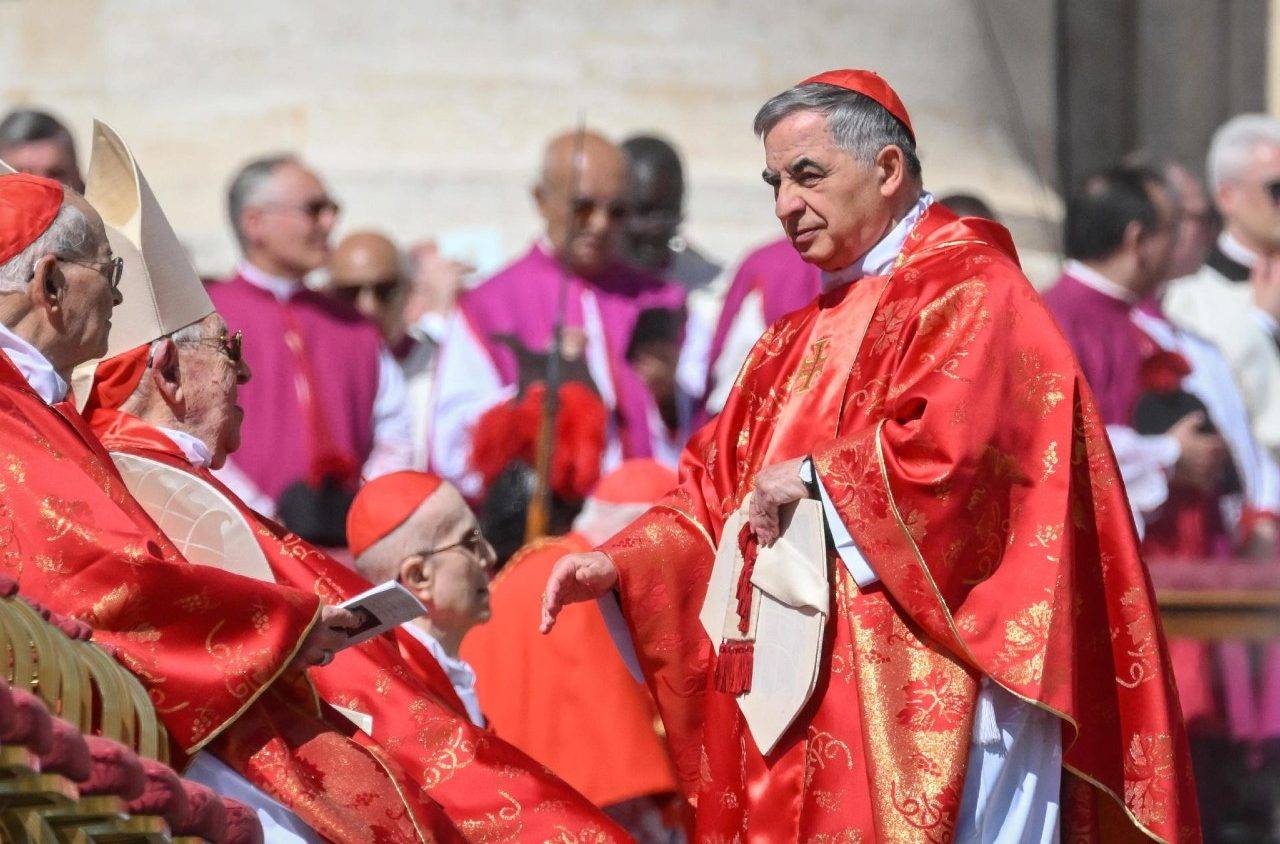ROME – Among the many traditions surrounding a presidential inauguration, Catholics seem to have created one of their own, especially when it’s a Democrat: Mixed messages from the Vatican and the US Conference of Catholic Bishops.
Twelve years ago, when Barack Obama was elected, Pope Benedict XVI dispatched a note of congratulations on Nov. 5, breaking the custom of waiting until Inauguration Day, and the Vatican newspaper, L’Osservatore Romano, gushed about the hopeful symbolism of Obama’s triumph. Later, then-editor Gian Maria Vian defended Obama from pro-life criticism, insisting he was not a “pro-abortion president.”
All that contrasted sharply with the tougher line of the U.S. bishops under the late Cardinal Francis George of Chicago, at the time the president of the conference, above all over abortion, and occasioned some sharp behind-the-scenes complaints to the Vatican’s Secretariat of State by George.
On Wednesday both the Vatican and the USCCB released statements on the inauguration, and once again it was a Tale of Two Tones.
Pope Francis’s brief congratulatory note to President Joe Biden was lofty and avoided areas of possible disagreement, while a longer message from Archbishop Jose Gomez of Los Angeles, president of the USCCB, offered prayers and support but also warned that the new administration “would advance moral evils and threaten human life and dignity,” drawing clear lines in the sand on the issues of “abortion, contraception, marriage, gender.”
For the record, this is not a case of “good cop/bad cop,” meaning a coordinated strategy to allow the pope to dangle a carrot while the bishops wield a stick. Both with Obama and with Biden, it’s a genuine tension between Rome and the USCCB, with neither side especially delighted with the approach of the other.
The difference between 2009 and 2021, however, is eight years of Pope Francis. When Obama took office, the U.S. bishops were fairly compact in focusing on the abortion issue, while today there are enough “Francis bishops” in the U.S. to offer a vocal counterweight, one closer to the Vatican’s line.
On Wednesday that voice came from Cardinal Blase Cupich of Chicago, widely viewed as one of Francis’s staunchest allies among the American bishops, who took to Twitter to call Gomez’s statement “ill-considered” and to object to what he described as a lack of consultation in how it was crafted.
Cupich also appeared to issue a warning that he’s not prepared to just let this go, saying the “internal institutional failures involved must be addressed.”
So, today we have three groups, not just two, at odds within the Catholic power structure: The Vatican, the leadership of the USCCB, and an increasingly influential cluster of bishops who dissent from that leadership.
Some may find this division distressing, especially at a time when a new president is calling Americans to unity. Yet here’s the glass-half-full reading: In a time when “facts” seem to be up for grabs, at least the discord reflected in those messages has the virtue of being honest.
Most importantly, this isn’t exclusively, or even primarily, a tension between Rome and the USCCB, or between Gomez and Cupich. Instead, it’s a fault line that runs straight through the hearts and minds of many American Catholics themselves.
Many American Catholics genuinely want to see the Church partner with the new administration to help build a post-pandemic society marked by greater inclusion, greater racial justice, a healthier environment, and many other pressing aims.
At a personal level, many American Catholics see a great deal to admire in Biden, not simply his devout Catholic faith but also his commitment to personal decency, and they don’t want to see their Church – which is, after all, the president’s church too – as his enemy, especially from day one.
Yet like Gomez, many American Catholics also regard the defense of unborn life as a “preeminent priority,” and struggle to reconcile their enthusiasm for Biden’s civil tone and broadly compassionate agenda with the reality that he’s likely to pursue policies on abortion they can’t support. For example, Dr. Anthony Fauci told the World Health Organization on Thursday that Biden is preparing to reverse the Mexico City Policy, which prohibits U.S. funding for overseas groups that provide or refer patients for abortions.
When that happens, at least some Catholics inclined to give Biden a chance will be left saddened and alarmed about what may come next.
In other words, framing Wednesday’s mixed messages as a conflict between two distinct factions isn’t the whole picture. Yes, there are some bishops more inclined to go to war with Biden and others disposed to make a separate peace, and they’ll likely continue to spar – unless, that is, the USCCB finds a way to deal with such contrasts in a quieter and less public way, which no doubt is a consummation devoutly to be wished.
Beneath all that, however, at the level where real people live and breathe without issuing statements or calling press conferences, this is less about competing camps than about contending instincts and divided hearts within the same individuals. If you’re a Catholic who tries to start with the faith rather a partisan position, some part of you had to be sympathetic with both Rome and the USCCB on Wednesday, with both Gomez and Cupich, and wishing you had a magic formula to unite the knot.
As just the country’s second Roman Catholic president, Biden’s relationship with his church inevitably will be part of the drama of his presidency. How he’ll thread the needle remains to be seen, but perhaps it’s not altogether a bad thing that, on day one, he got an inadvertent reminder of just how demanding that may turn out to be.
Follow John Allen on Twitter at @JohnLAllenJr.
















